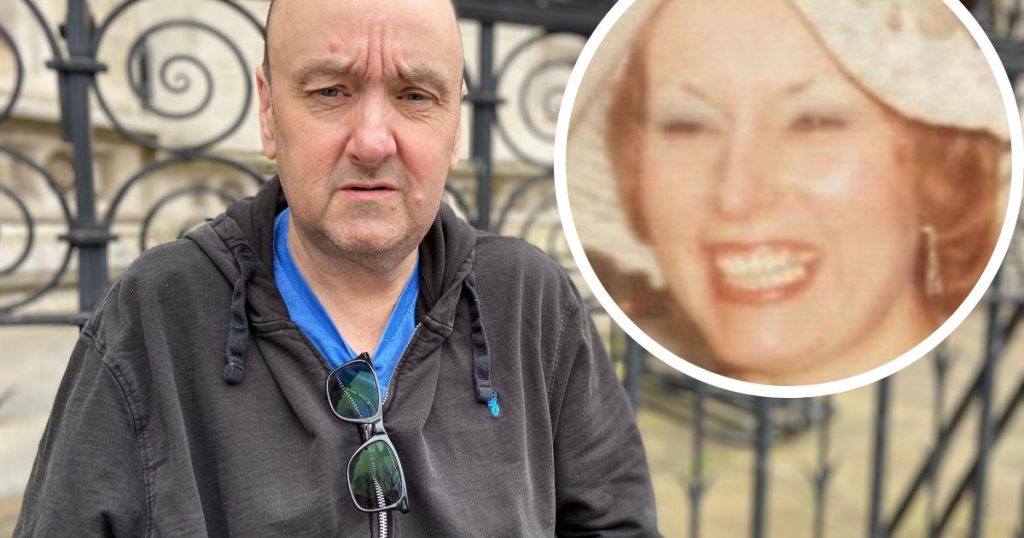Rosslyn Wolff, 74, died when a fire broke out at her house in Myrtle Road on January 11, 2022.
She lived in such chaos and squalor that state agencies had recognised for years she was at risk of death from fire.
But after a two-day inquest at East London Coroner’s Court, Ian Wade KC ruled her death an unpreventable accident.
Rosslyn had exhibited a catalogue of such peculiar behaviour in her final years that relatives, neighbours, police officers and her GP all voiced concerns for her mental health.
The former paralegal, who had become obsessed with the notion that mysterious figures were conspiring to steal her land, was twice detained under section after being found wandering around in a confused state.
Firefighters, mental health workers and a tradesman had all raised concerns about the squalid conditions in her house, which were so bad that police and RSPCA officers broke in and removed her dogs.
Rosslyn died in 2022 (Image: Gary Parkin) Rosslyn’s self-neglect and behaviour, angrily rejecting all offers of help, led loved ones and some medical experts to believe she had dementia.
But in October 2021, weeks before her death, a psychiatrist at the Woodbury Unit in Whipps Cross Hospital could not diagnose any mental condition, saying Rosslyn was just “idiosyncratic” and “a free spirit”.
“This is her personality,” insisted Dr Essam Kamel. “It’s not a disorder. It’s not a mental illness.”
However, Havering Council and other agencies were unconvinced and continued to suspect Rosslyn lacked the capacity to make sound decisions about her own welfare.
A plan was hatched in December 2021 to join forces and seek special powers from a court to intervene.
However, it was waylaid by a new Covid-19 variant and Rosslyn died before it could be executed, when a lit cigarette set fire to her sofa.

Rosslyn’s son Gary Parkin, 56, from Doncaster, testified that in 2019, he sent more than 40 photographs of the squalid conditions at her home to Havering Council and North East London NHS Foundation Trust (NELFT – the local mental health trust).
“I believe my mother could have been saved,” he told the court. “The people that are involved should hang their heads in shame for what you did to my mother.
“You had other people telling you… but you did nothing.”
“What’s done is done,” he added. “It’s not going to bring my mum back. But please, please, please stop it happening to any other families because it’s not fair on people. She did not need to die.”
However, Mr Wade said his inquest was confined to the sequence of events that directly led to Rosslyn’s death.
“Her death was not caused by the state of her home,” he said.
“To this extent, the actions or inactions of the local authority, depending on your point of view, are irrelevant.
“To the same extent, the actions or inactions of the mental health trust or the primary care and the clinicians in the Woodbury Unit are irrelevant.”
He reasoned: “The fire would have occurred as it did if the house had been spotlessly clean. It would have occurred as it did even if Rosslyn had only ever smoked that one single cigarette in her whole life.”
He said Mr Parkin had “expressed himself robustly, probably in a way he learned from his mother, who he clearly adored.”
But of the state agencies Mr Parkin condemned, the coroner said: “I don’t agree with his view that they in some way share a responsibility for Rosslyn’s death.”
“She was not mentally ill,” the coroner said. “She was entitled to live the life that she chose to, as she chose to live it, and the law protected that right.”
Mr Parkin said that while he respected the inquest process, he disagreed with the conclusion that his mother was not mentally ill and could not have been helped.
He said he planned to bring wrongful death lawsuits against Havering Council and NELFT.



